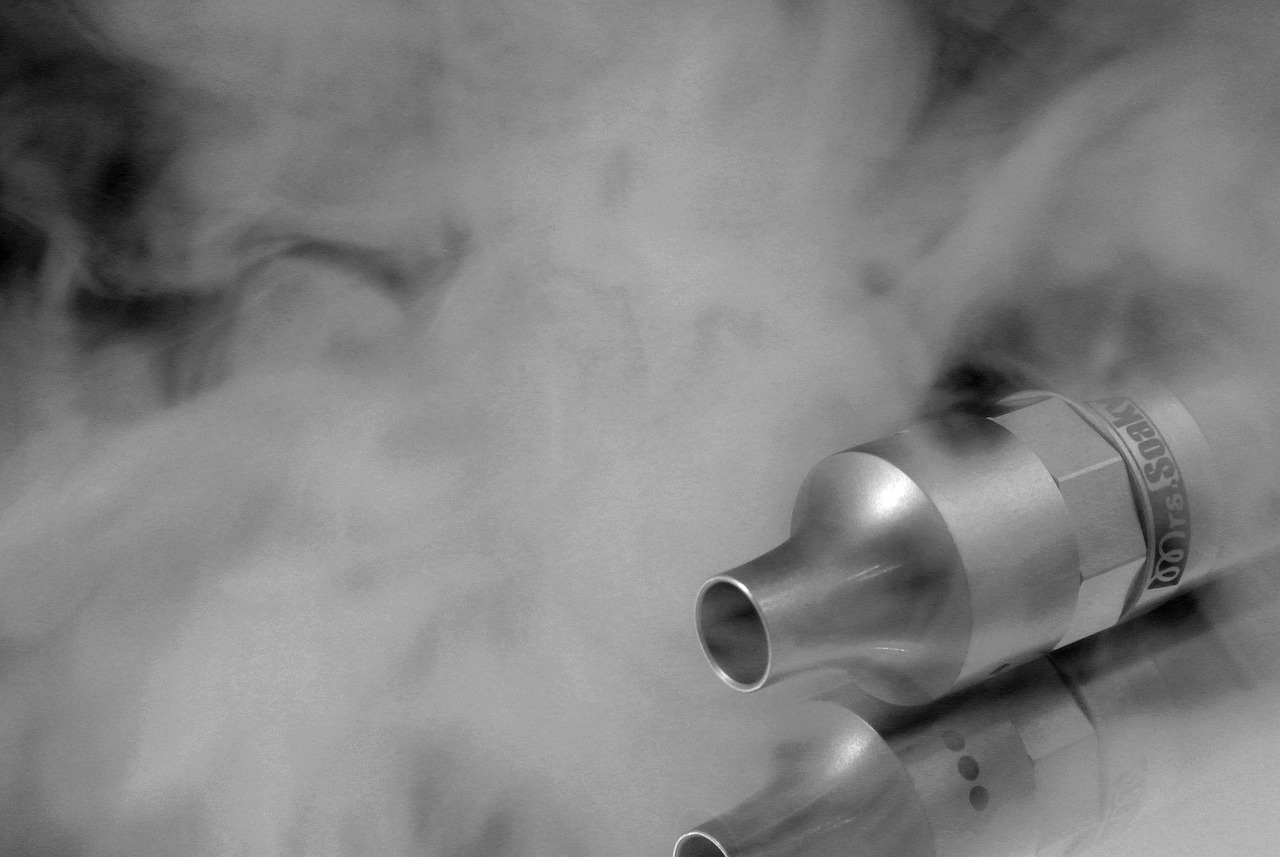Amending the law on tobacco smoke and banning the advertising of all types of cigarettes would reduce the percentage of young people in Serbia consuming them
"There were times when my lungs hurt even in my sleep. Every time I cough, I fear for my life. I made a commitment to quit smoking for the sake of my family, because the smell of cigarettes is unpleasant for others. Instead of quitting, I turned to an electronic cigarette. The little blue device has been an extension of my hand for 7 years," says Nikola Lukic while carefully walking down the stairs at the exit of the Stari grad Health Center in Belgrade.
Nikola works as a commercialist, he graduated from Railway College and is 36 years old. He decided to look for help for cigarette scrapping in the counseling center within the Health Center. The program launched by the Stari grad Health Center is completely free of charge and is organized as a group work. "I would agree to anything if it means never thinking about cigarettes and smoke again from tomorrow," says Nikola, faithfully illustrating the desperation of avid smokers.
He joined the sessions two days ago, he isn't able to see the first results because it's too early, and he doesn't like that he has to listen to everything he already knows there, just in a more formal way. "We need to find strength within ourselves. I am always looking for strength within myself, but it disappears with every hour I try to live without the smoke in my mouth."
Today, various methods for quitting smoking are emerging as opponents of the tobacco industry, which create even more confusion in already confused users who crave a solution. Thus, through a short internet search, the user can get acquainted with various types of psychological support, lasers that "without exception" forever destroy your addiction to nicotine, as well as hypnosis performed by doctors in one-on-one sessions where words reach the part of the brain that is "culpable" for your addiction. According to information from employees of the Health Center, counseling is also visited by young people, and often they come accompanied by their parents.
Dr Jelena Gavrilovic from the Stari grad Health Center says that within their counseling, considering the resources, the most possible work is being done. "There is no special funding for psychological counseling of participants of this kind of treatment. All the money received for the Health Center is best distributed, we cannot have this kind of assistance throughout the year, there are simply no resources. That's why sessions are held for only five days, every month. Participants must be very determined to really quit smoking because without that will, five days is not enough for us to completely change their consciousness," explains the doctor.
In the last four years, the use of hookahs, wapes and snus among teenagers has increased, which seems to be a bigger problem for today's youth than traditional cigarettes. Opponents of such alternatives often say that the aforementioned devices have not been sufficiently examined, it is not known what is in them and "what they poison us with".
Dr Snezana Zdravkovic points out that when it comes to these products, we finally get information about their permanent harmfulness. "An innocuous substance such as that plant glycol, when heated, gives off other substances that decompose, destroy the lungs and that is the permanent damage," emphasizes Dr Zdravkovic.
"Now we have diseases such as lung injury, like damage to the lungs by a waist, then a popcorn lung, in which the airways are closed by some fibrosis or scar changes and do not allow the exchange of oxygen," continues Dr Zdravkovic. She says that most young people who use these products, may never even smoke, but do it because it is popular. Many celebrities advertise new electronic cigarettes, taking no responsibility for young, undeveloped personalities who will become nicotine addicts as a result. "It has been proven that just three years of use leads to a 30 percent higher chance of developing lung disease," the doctor warns. 
Are cigarettes or new products such as electronic cigarettes or vapes more harmful?
The National Institutes of Health (NHI) has conducted research on the harmfulness of "vaping" compared to smoking traditional cigarettes. The researchers found that the blood of those who used e-cigarettes and those who smoked traditional cigarettes caused a significant reduction in nitric oxide production in blood vessel cells than in those who did not smoke at all.
The blood of those who used e-cigarettes also caused a greater release of hydrogen peroxide from blood vessel cells than the blood of those who did not use them. Both factors can contribute to damage to the function of blood vessels, and it is concluded that there is a high level of damage to the bloodstream and the body and in e-cigarettes, according to the National Institute of Health website.
On the other hand, the Public Health Authority of England advises that e-cigarettes are much less harmful than smoking ordinary cigarettes and that people should not hesitate to use them as a quitting aid. Opinions are different, various institutions and research contribute to the aforementioned confusion in smokers who want to change their habits. A thousand questions arise, do you switch to electronic alternatives, turn to lasers and hypnosis or seek help from a psychologist?

Advertisements as the main culprits of the growing interest of young people in cigarette use in Serbia
The Law on Advertising of the Republic of Serbia prohibits advertising of tobacco and tobacco products, as well as messages depicting smoking or imitation of smoking. Article 68 of the Same Law prohibits the advertising of alcoholic beverages, except wine and beer, in exceptional conditions. The problem arises with the emergence of new types of cigarettes that the law enacted before their appearance does not actually recognize at all.
Ever since their appearance, electronic cigarettes have targeted young people, accompanied by an attractive appearance and some influencer personality who will proudly display the cigarette in public. Companies in the United States were warned last month to stop selling illegal school-like e-cigarettes, featuring cartoon characters and even teddy bears, because they are even more attractive to young people.
On the occasion of the start of the new school year, the World Health Organization (WHO) has published two new publications: "Freedom from Tobacco and Nicotine: A Guide to Schools" and "School Tools Free of Nicotine and Tobacco", to help protect children's health. It warns that the tobacco industry with nicotine products is mercilessly targeting young people. This leads to increased use of e-cigarettes, with nine out of ten smokers starting to use them before the age of 18. It also adds that products have become accessible to young people through the sale of single-use cigarettes and electronic cigarettes, which often lack health warnings.
The results of a survey by Tobacco Free Network and the American Cancer Society show that 90% of stores keep cigarettes on the shelf just above the cash register (where you are most likely to buy them), 30% of cigarette advertisements appear right next to candy and children's toy shelves, cigarette advertisements exist in 68% of stores and 15% of stores selling cigarettes are located less than 300 meters from schools.
In late 2019, Instagram passed a ban on advertising e-cigarettes, tobacco and weapons, which mostly applied to influencers and offers they make thanks to their mass audience. Although the ban exists, it is insufficiently regulated and we are witnessing that advertisements of different brands of e-cigarettes are placed on social networks every day.
Umbrella, Iqos and Crystal are just a few of the brands that pay celebrities in exchange for advertising on certain platforms. The idea is to film and take pictures while consuming a cigarette and thus attract future users. The problem is that the biggest fans of these singers, actors and athletes who promote electronic cigarettes are mostly children and teenagers.
The WHO publication and school guide points to some of the effective ways to prevent cigarette consumption in young people. Thus, the guide mentions a ban on direct and indirect advertising, any sponsorship by e-cigarette companies, as well as a ban on the sale of all kinds of devices near the school. Stricter control of personal identification documents when shopping in markets would be another effective method. The tobacco smoke law, which would also be applicable to e-cigarettes and vape products would also significantly restrict young people, even adults, from smoking in cafes, cinemas and shopping malls.
In regulating this problem, one must also think of non-smokers who are exposed to smoke against their will, as well as children who easily fall under the influence of the Internet and advertising. When young people are not aware of the dangers they are exposed to on a daily basis, authorities and competent institutions must devise ways to protect their health and thus limit the negative consequences. To begin with, the changes and mechanisms mentioned above would be a great first step along the way.
Author: Nina Ćuraković
Mentor: Assistant professor Marko Nedeljković, Department of Journalism and Communication Studies, Faculty of Political Sciences - University of Belgrade









